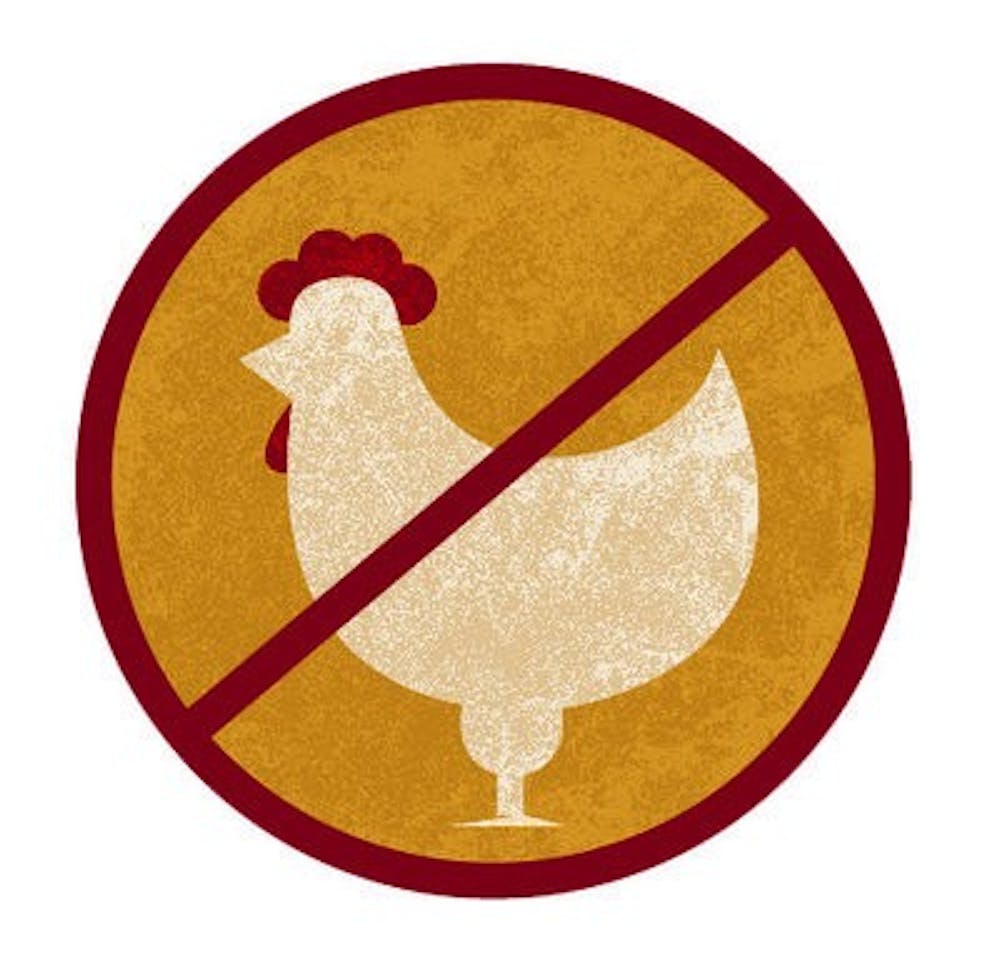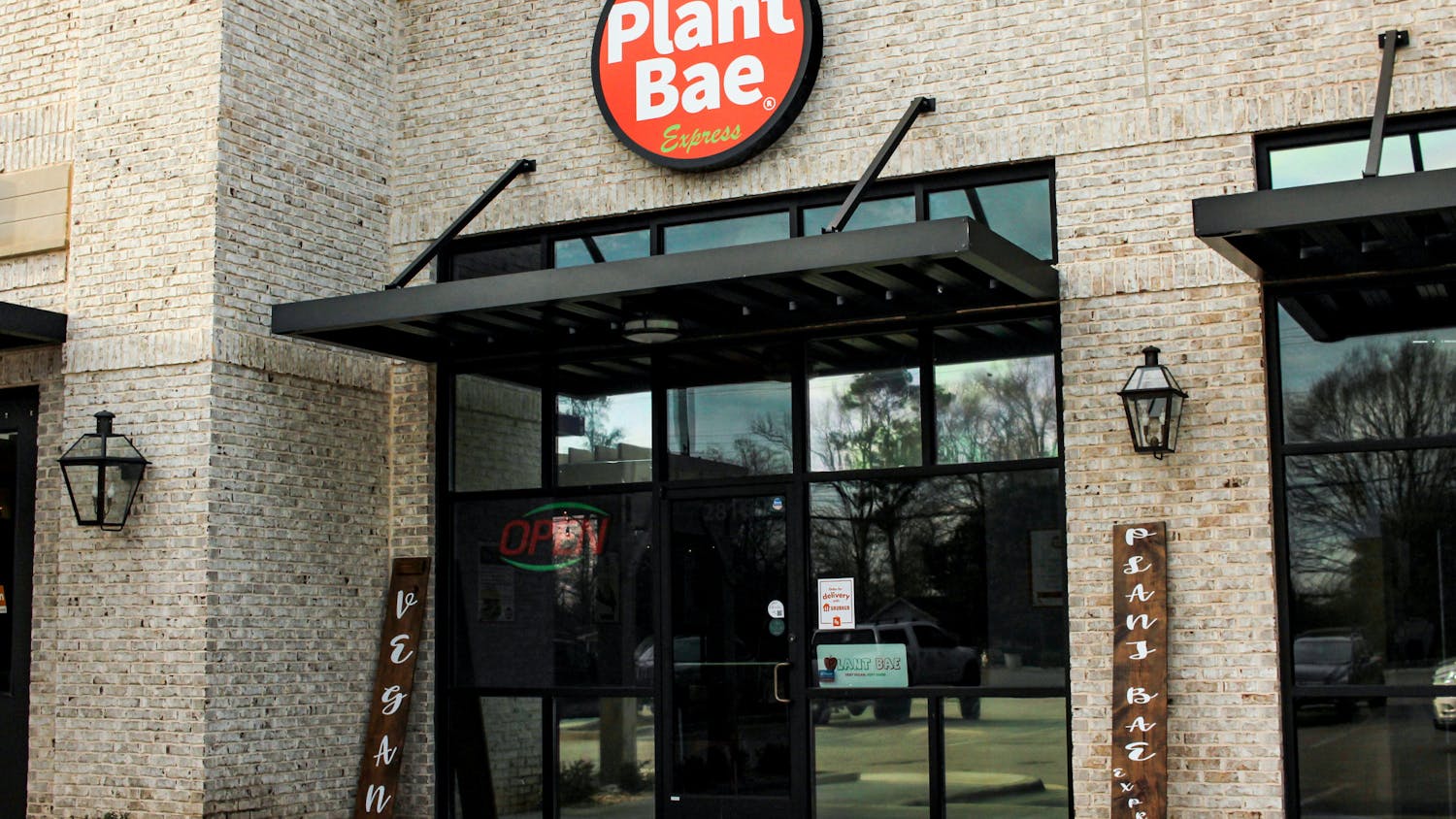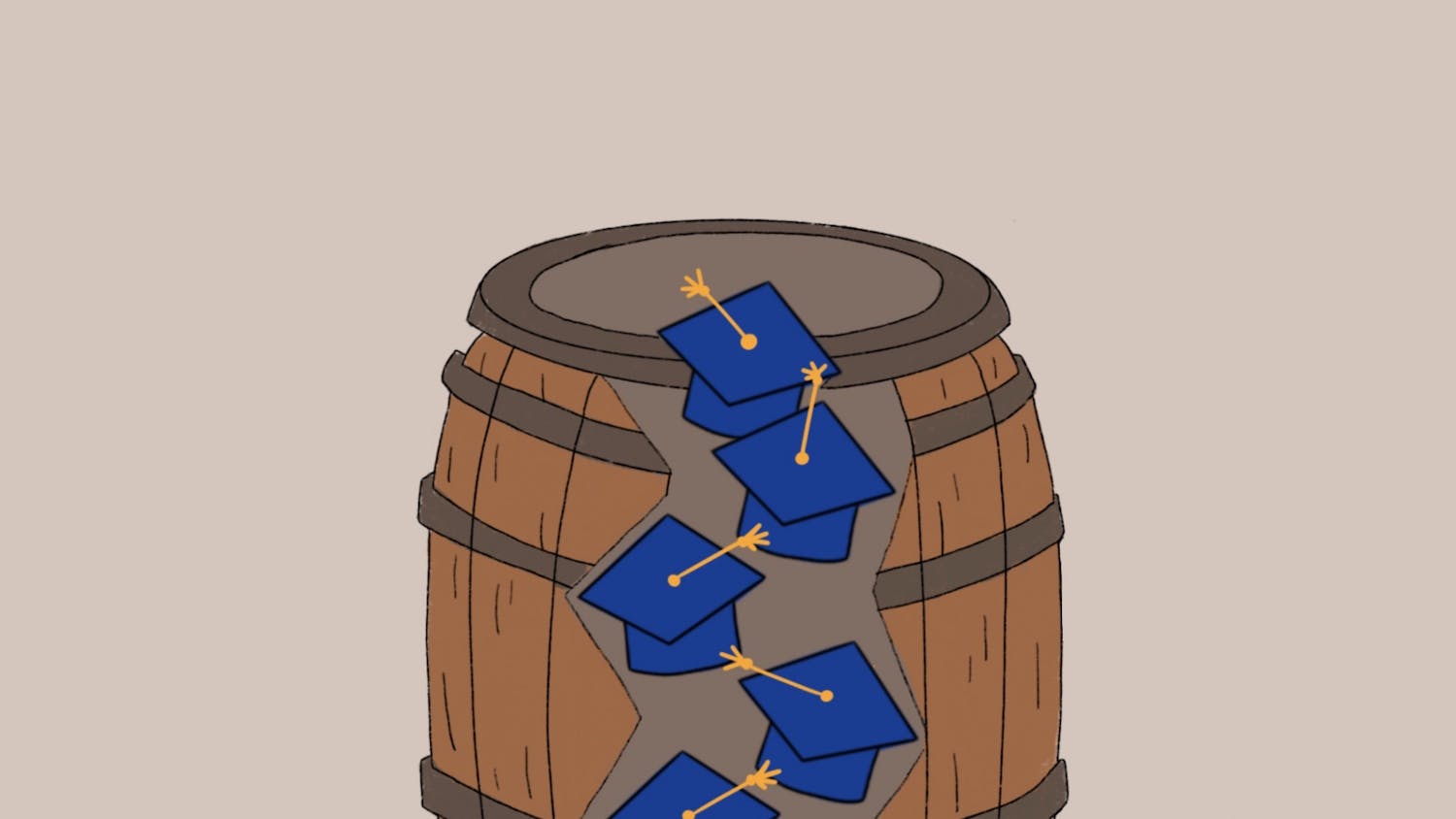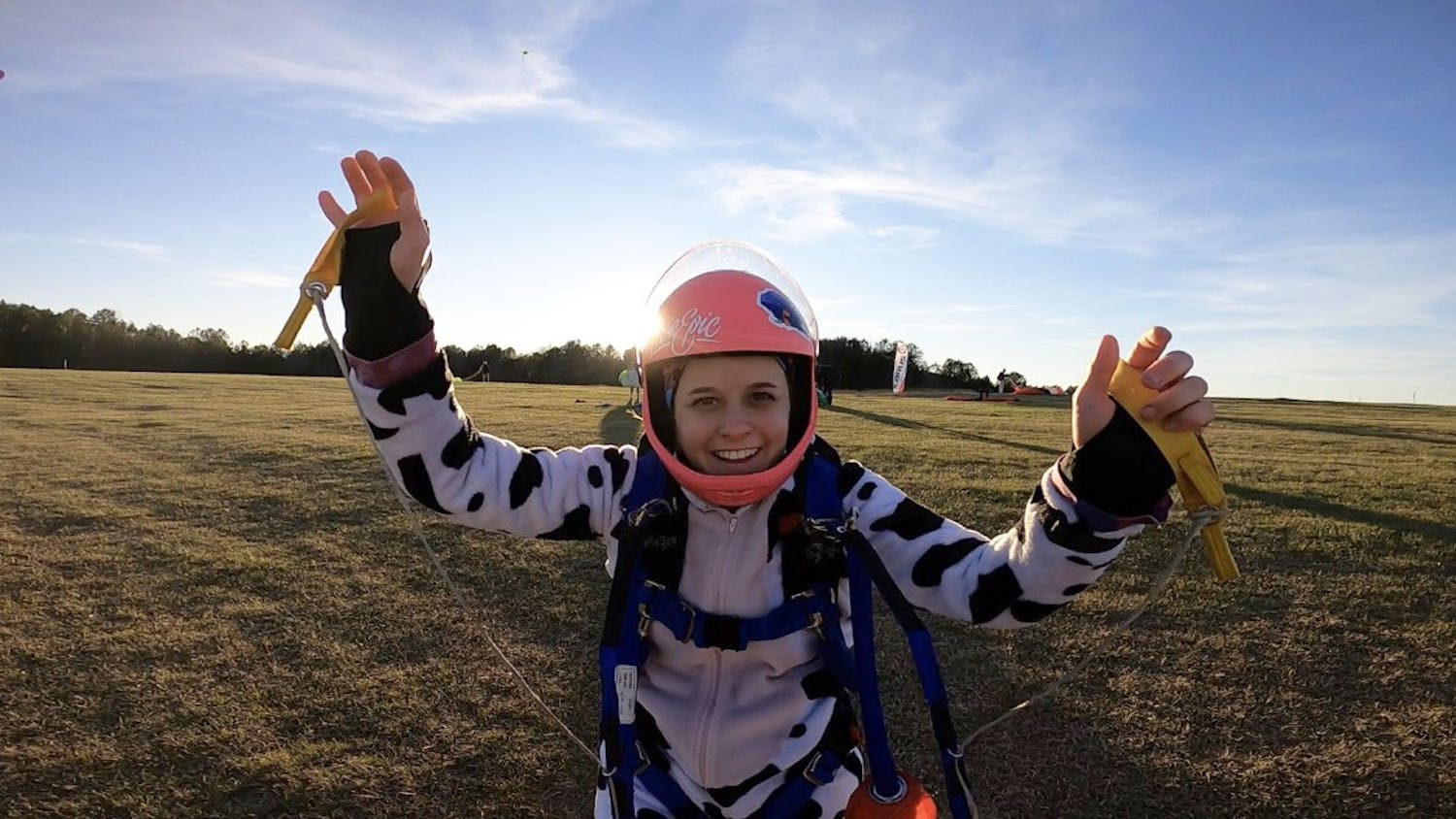This is the South. Meat is the main event on most plates, bonus points if it's bacon, and something covered in cheese is typically on the side. So when an individual decides to try an alternative diet, it can be a challenge.
Whether for religious, ethical or health reasons, the number of individuals deciding to stick to a meat-free diet has been on the rise recently, according to the Vegetarian Resource Group.
It's common knowledge that vegetarians don't eat meat. But what many people often don't know is the difference between a vegetarian and a vegan.
All vegans are vegetarians, but not all vegetarians are necessarily vegans.
While neither group consumes meat, vegans also cut out animal byproducts such as dairy and honey.
Samantha Patton, freshman in pre-business, said she decided to change to a vegan diet shortly after graduating high school in May.
"As great as animals are, that wasn't my choice--to do it for animals," Patton said. "It's just something that makes it easier for me to make better choices when I eat."
Patton said the idea to try veganism was partially sparked after Patton and her twin sister watched the 2011 documentary "Forks Over Knives."
"Some [points made in the documentary] I don't particularly agree with," Patton said. "But some I thought, 'okay, maybe I'll just give it a try.' And we did and it's worked out pretty well."
While Patton's decision to make the switch to veganism was based on her health, many vegans base their choice on ethics.
Jon Camp, director of outreach for Vegan Outreach, was on campus recently passing out pro-vegan leaflets.
Vegan Outreach is a nonprofit organization dedicated to spreading knowledge about the treatment of factory-farmed animals and encouraging individuals to help decrease the demand for animals raised for human consumption.
"Our long-term goal is to push for a day when we take animal suffering more seriously than we do now," Camp said.
The leaflets provide images of animals suffering from conditions in factory farming and captions describing the associated farming methods. Though Camp has been a vegan for 15 years, he said Vegan Outreach doesn't expect everyone to make the same decision.
"We advocate anything from meat reduction to veganism," he said. "We don't hold up this all-or-nothing position. We want people to make whatever changes they can."
And for anyone who thinks they want to try veganism, Camp has some advice.
"Take it in steps," Camp said. "Eat vegan for one day a week, then two, then just keep moving forward to going completely vegan. Take it at a pace you're comfortable with."
Camp said he recommended limiting meat rather than completely cutting it out of a diet. Learning to substitute meat with foods that will both satisfy and supply important nutrients is crucial.
"Veganism takes a lot more intentionality and respect for the nutrition piece to make sure you do it in a healthy way," said Jessica-Lauren Newby, Auburn University's campus nutritionist.
Newby said certain key nutrients are tricky to consume adequately in a vegan diet.
"We are most concerned in vegans about their calcium, their iron, their omega-3 fatty acids and their B-12," Newby said. "All of those vitamins and minerals most commonly occur in animal foods and are more readily absorbed from animal-based food intake."
Though a vegan diet can be healthy, Newby said it's not a quick fix for weight loss.
"Some see weight loss, but it's really based on what a person was eating before and what they change to on a vegan diet," Newby said.
While there's no cholesterol, and typically less saturated fat, in a vegan diet, not everything qualified as vegan is nutrient dense and healthy.
Newby pointed out that even Jolly Ranchers candies are technically vegan.
Camp said whatever the motivation, a vegan diet can be satisfying if done right.
"Eating means a lot more to me now," Camp said. "I'm not just eating for myself, but I'm living according to my values and trying to decrease the amount of suffering in the world each day."
Do you like this story? The Plainsman doesn't accept money from tuition or student fees, and we don't charge a subscription fee. But you can donate to support The Plainsman.





